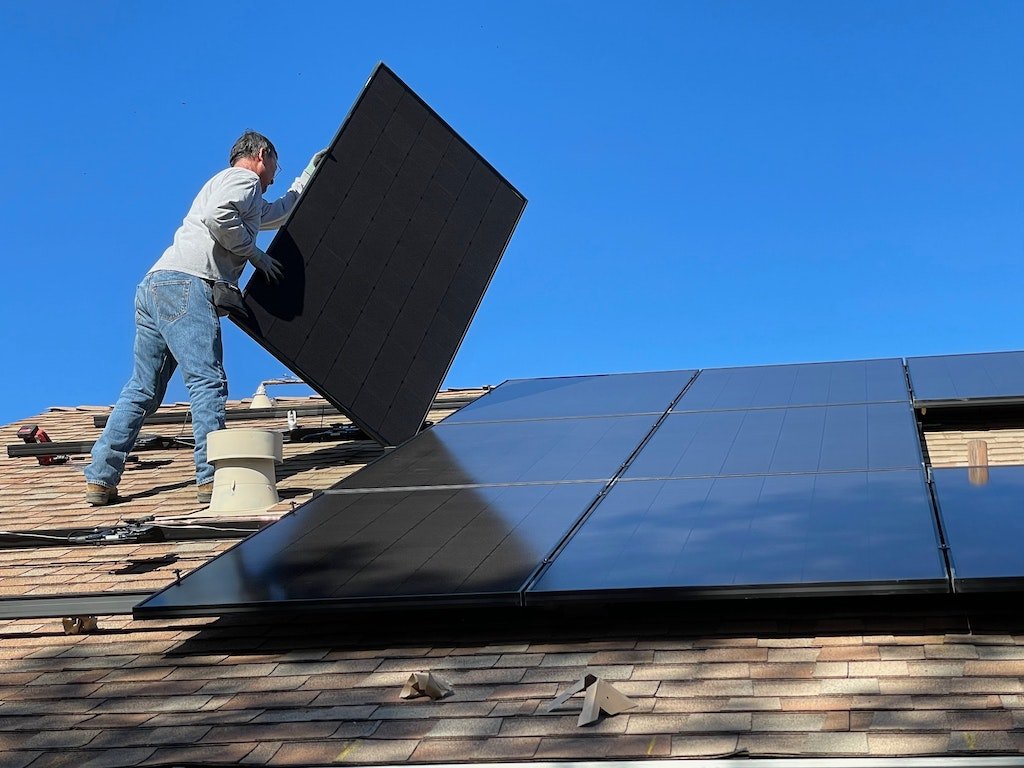Are Solar Panels Worth it in Canada?
More and more Canadians are adopting solar power to generate electricity while helping to reduce pollution.
Solar has demonstrated significant growth over the last decade, with installed capacity reaching 3,310 MW at the end of 2019, up from just 221 MW in 2010. In 2020, at least 70 MW of solar PV capacity was added in Canada.
It is anticipated that by 2040, 3% of Canada’s total electricity generation will be a result of solar power, with some companies predicting that Canada is on the cusp of mass adoption.
While many Canadians are interested in doing their part to aid the environment while also reducing the cost of their monthly electricity bills, some are still hesitant about solar power.
Concerns about how much it might cost, whether it will provide enough return on investment, and how effective it would be in their location are some of the leading concerns. Are solar panels worth it in Canada?
How Much Does It Cost to Install Solar Panels in Canada?
The average homeowner would be more than happy to start saving on their electricity bills but may be less inclined to put up the investment to do so. If the purpose is financial savings, then of course there would be concerns about whether installing solar panels will cost too much and if it might not generate enough power to provide significant savings.
The good news is that the cost of solar power has been dropping over the past several years with solar panels dropping in price by nearly 55 percent between 2008 and 2018. At the same time, their efficiency has been increasing. This combination of reduced prices and greater efficiency makes solar a far better deal than it was even just a few years ago.
The energy needs of a particular building will determine the exact cost, though budget will obviously be an important factor. The average home, for example, might be in the 4kW to 10kW range. With the average grid-connected solar power system requiring 10 to 24 solar panels to produce 4 to 9.6kW, a homeowner might pay between $12,000 and $25,000, with everything fully installed.
Does Your Area Get Enough Sunlight?
Canada has a comparatively cold climate and sits at a high latitude, meaning it receives less direct sunlight than countries at mid-latitudes. Despite this, solar power is in use in many places across the country, ranging from the rooftops of homeowners to power plants.
There is a common misconception that Canada does not receive enough sunlight to make solar power worthwhile. On average, Canada experiences 333 sunny days per year, equalling 2,396 hours of sunshine. 52 percent of daylight hours are sunny.
While some parts of the country receive as little as 250 hours of sunshine in a year, it’s worth noting that even on overcast days, a solar system will still produce as much as 30% of the electricity it would on a sunny day. Additionally, solar panels are more efficient at cooler temperatures, meaning Canada’s cooler temperatures actually provide something of an advantage.
While many think of hot, sunny locations as the only real choice for solar panels, Canada receives more than enough sunlight to generate solar power.
Benefits of Going Solar in Canada
While saving money on their electricity is obviously a major factor for many people, there are several reasons why one might wish to invest in solar power, as it offers numerous benefits beyond reducing bill payments. Some of the main ones include:
Better for the Environment
Aside from the financial savings, this is probably the main reason why some will choose to adopt solar power. Every kilowatt-hour (kWh) of solar energy produced helps to reduce greenhouse gas emissions like CO2, nitrogen oxides, and sulphur oxides.
Protects Against Future Price Increases
With solar energy, you will continue to receive abundant, renewable electricity without having to worry about rate increases from your local utility company.
Improved Home Value
When shopping for a new home, many are willing to pay a premium for one that has solar power. Studies have indicated that the addition of solar panels can increase the value of a home by 4.1%. Other studies suggest that the value increases by as much as $6,000 per kW installed.
Return on Investment
Adopting solar energy provides a great return on investment, with savings on your energy bills paying for the cost of the panels several times over.
Are Solar Panels Worth the Investment?
Do You Really Save Money With Solar Panels?
The exact amount that you save will vary depending on your individual circumstances but it’s possible to create a rough estimate of your potential savings. Consider that a typical solar-powered system will produce between 350 and 850 kilowatt hours (kWh) per month, while an average home may use roughly 909 kWh of energy. In this situation, adopting solar power could save you as much as 90% or more on your monthly bills.
Let’s say that the average home consumes 11,135 kWh in a year, paying $130 per month. Over the next 30 years, that will add up to $46,800 without even accounting for increases in rates. Installing a 10 kWh solar system at the cost of $2.91 per watt would require an investment of $29,100 but would supply electricity to the home for 30+ years.
In this scenario, if you subtract the cost of installation from the savings on electricity for 30 years, it will result in savings of approximately $17,700 over the lifetime of the panels. Assuming your electricity rate increases over the next 3 decades, it will result in even greater savings.
More: 3 Reasons Why Millennials are Investing in Solar Energy
There is no doubt that installing solar panels requires a sizeable investment up front. Fortunately, there are incentives available that can help with this expense.
For homeowners who wish to go green, this includes up to $40,000 in interest free loans administered through the Canadian Mortgage and Housing Corporation (CMHC) as well as up to $5,000 from the Greener Homes grant initiative.
Ideally, you want to aim for paying off your new solar system within about 10 years, using the savings they provide you on your regular electricity bill.
If you can do this, then investing in solar panels will prove worthwhile for you, as the panels can last approximately 30 years with practically no maintenance other than cleaning off the snow in the winter months. This means that the panels will pay for themselves in 10 years and then continue to provide you with savings for at least another 20 years.
For anyone who is looking to reduce their energy bills and help to reduce their carbon footprint, investing in solar power is an excellent option, particularly in areas where electricity prices are high. Combined with the incentives being offered to make the switch to solar, it becomes a much more obvious choice.
Solar panels are absolutely worth it in Canada! With rising energy costs, government incentives, and the environmental benefits of renewable energy, going solar is a smart investment for homeowners. Whether you’re looking to reduce your electricity bills or lower your carbon footprint, solar energy offers long-term savings and sustainability. Ready to explore solar for your home? Visit Sunly.ca to learn more, check out our blog on solar panel costs, or contact us for a personalized quote. Don’t forget to read our customer reviews and find out how many solar panels you might need. Go solar with Sunly and start
If you are considering adding solar panels to your home, contact us today for more information.




